July 2020 National eResearch Newsletter
Welcome to the July 2020 National eResearch Newsletter
Message from AeRO
AeRO is excited to announce that the eResearch Australasia conference from 19-23 October will use an online virtual format. With Andrew Rohl as Conference Chair, we’re pleased to be partnering with our conference providers to bring you an exciting online program that includes keynotes, presentations BoFs and interactive activities as well as a unique sponsor portal for attendees to engage.
We’re polishing the website at the moment and look forward to making the official 2020 conference announcement shortly.
In the meantime, check out the recordings from the C3DIS Collaborative Conference on Computational and Data Intensive Science – now available from download via AeRO member AARNet’s CloudStor.
Kind regards, Loretta Davis & Sam Moskwa
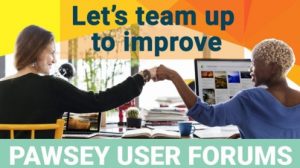 |
Pawsey User Forum: 20 July
For current or past Pawsey users only. Join the Pawsey User Forum for an update on the $70 million upgrade to Pawsey Supercomputing Centre’s infrastructure and the opportunity to discuss your experiences using Pawsey services.
Your feedback can cover all aspects of interactions with the Pawsey Supercomputing Centre. This may include the full project lifecycle of application, allocation management, usage, and reporting for the various supercomputing, data, cloud and visualisation systems that Pawsey operates. This is also your chance to help us shape the future of HPC for Australia’s researchers.
Register here: https://pawsey.org.au/event/pawsey-user-forum/. |
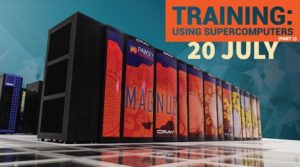 |
Using Supercomputers: 20 July
Learn how to use Pawsey supercomputers in part 1 of this series. This includes logging in, software, job queues and key terms including SLURM, partitions, nodes, schedulers and data movers.
Register here: https://pawsey.org.au/event/using-supercomputers-part-1-90-minutes/. |
| EOI for the ARDC Platforms Program is Open, Closes 24-Jul
The program is about providing solutions that enable researchers to collect or generate data, analyse those data, and produce outputs that can be made Findable, Accessible, Interoperable, and Reusable (FAIR).
We are calling for EOIs (by 24-Jul-20) to identify potential collaborations between researchers, research infrastructure providers, research organisations and communities around proposed platform investments, to maximise each platform’s potential impact.
See https://ardc.edu.au/collaborations/strategic-activities/platforms/platforms-open-call-2020/. |
|
 |
Pawsey Hour: Ask Me Anything: 27 July
Pawsey Supercomputing Centre invites you to join us for Pawsey Hour (Ask. Me. Anything.), our new way of reaching out to the research community.
Pawsey Hour AMA is an opportunity to join in a discussion with Pawsey expert staff and an online community of peers:
Register here: https://pawsey.org.au/event/pawsey-hour-ask-me-anything-13/. |
 |
Phenomics Australian Survey: by 31-Jul
Do you work with experimental genomic and/or phenomic data for biomedical research? What are your greatest challenges in managing or analysing genomic and phenomic data?
We are currently looking for feedback regarding our current service offerings, as well as what infrastructure would help to facilitate e-research into the future.
Whether or not you have used our services in the past, please let us know how we might better support your digital/data research needs by completing our national research infrastructure survey, at https://mailchi.mp/cf5d2c6b3da6/phenomics-australia-national-research-infrastructure-survey, by the end of July. |
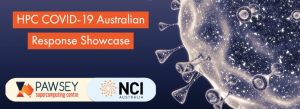 |
Pawsey Friday: 31 July
With the rise of COVID-19, Pawsey and NCI have contributed extensive resources to assist researchers in the fight to overcome the coronavirus.
During this Pawsey Friday, you will hear updates from ‘hands on’ researchers working on understanding the lineage of the virus, making statistical inference about potential treatment outcomes, COVID-19 targets molecular modelling, and more.
Register here: https://pawsey.org.au/event/pawsey-friday-covid19/. |
 |
Introduction to Remote Visualisation: 3 August
Join the Pawsey Supercomputing Centre’s Introduction to Remote Visualisation training on 3 August to learn:
Register here: https://pawsey.org.au/event/introducing-remote-visualisation/. |
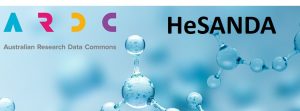 |
Clinical Trials Research Data National Asset: from 11-Aug
The ARDC invites interested parties to participate in a series of consultation workshops, beginning 11 August, to help establish research uses, data requirements and the feasibility of a national data asset created from clinical trials research data.
Register before 3 August at https://www.eventbrite.com.au/e/hesanda-consultations-with-clinical-trials-researchers-registration-112911382986. |
| HPC Australasia GPU Bootcamp: Registration closes 11-Aug
NCI, Pawsey and NeSI are working with NVIDIA to offer a virtual GPU Bootcamp, an exciting and unique way for scientists and researchers to learn the skills needed to quickly start accelerating codes on GPUs. Dates: 25 to 27 August.
More information and an indicative program available here: https://nci.org.au/news-events/events/hpc-australasia-gpu-bootcamp. Register here: https://pawsey.org.au/event/hpc-australasia-gpu-bootcamp/. |
|
 |
Australian BioCommons Webinars: 19-Aug
DNA Zoo – Facilitating conservation efforts through rapid and open release of high-quality genomes. Presenter: Associate Professor Parwinder Kaur, Director, DNA Zoo Australia, Faculty of Science, University of Western Australia Wednesday, 19 August 2020, 12:00 pm AEST
LFQ-Analyst – An interactive web-platform to analyse and visualise proteomics data preprocessed with MaxQuant. Presenter: Dr Anup Shah, Monash Bioinformatics Platform and Monash Proteomics & Metabolomics Facility, Monash University Wednesday, 9 September 2020,12:00 pm AEST
More information: https://www.biocommons.org.au/events. |
 |
International Symposium on Data Science: Abstracts close 31-Aug
DSWS2020 will be held online on 23-25 September 2020. The focus of the symposium will be on “Global Collaboration of Data Beyond Disciplines” – see https://ds.rois.ac.jp/article/dsws_2020/. Sessions will discuss the future development of data-oriented infrastructure in the Open Science era, and equitable open access to quality-assessed research data, and will host the 10th-anniversary celebration of the World Data System (WDS) of the International Science Council (ISC).
Abstract submission closes on 31 August. The event is organised by Joint Support-Center for Data Science Research (DS) of the Research Organization of Information and Systems (ROIS) and the Committee of International Collaborations on Data Science of the Science Council of Japan (SCJ). |
 |
eResearch-Australasia Conference 2020 Feedback Needed
FEEDBACK NEEDED! The eResearch Australasia Conference Organising Committee needs your feedback to help with planning for this year’s conference. Answer 10 simple questions via our survey at https://surveymonkey.com/r/QNPHHQG to help inform the conference program. |
 |
Towards FAIR Principles for Research Software
Last year, the paper “Towards FAIR Principles for Research Software” (https://content.iospress.com/articles/data-science/ds190026) was co-authored by Paula Martinez Villegas of the National Imaging Facility. As of June 24, 2020 it was the most viewed article in Data Science in the first half of 2020 (see https://www.iospress.nl/ios_news/towards-fair-principles-for-research-software/).
To continue community discussions around this topic, three global organisations (Research Data Alliance, Research Software Alliance and FORCE11) are jointly coordinating a working group around FAIR for Research Software and everyone is invited to participate https://www.rd-alliance.org/groups/fair-4-research-software-fair4rs-wg. |
 |
COVID-19 Roadmap to Recovery
The Melbourne eResearch Group (www.eresearch.unimelb.edu.au) developed a crowd-based reasoning platform called SWARM as part of a US Intelligence (IARPA) funded CREATE program (https://www.iarpa.gov/index.php/research-programs/create).
This platform was recently used by 100+ academics across the Go8 Universities to analyse possible outcomes related to policy decisions in relaxing COVID-19 social distancing restrictions. The taskforce examined a range of questions ranging from rules for travel and border protection, preparations for reopening schools and businesses, special consideration for the elderly, rural residents, indigenous people, and citizens needing mental health support, and communications strategies to encourage public support and cooperation.
See https://go8.edu.au/research/roadmap-to-recovery for details of reports that were produced by SWARM. |
 |
1 Million Downloads for Monash Research Bridges
This month we are celebrating an exciting new milestone for Bridges – Monash University’s repository for research data and collections. Far sooner than we had ever anticipated, the number of downloads in Bridges has now reached 1 million. That’s 1 million downloads of Monash research!
In collaboration with Figshare we have published a case study that looks at Monash University’s six year journey, from launching monash.figshare for research data, to the Bridges rebranding, widespread institutional use cases including an archive and open access journal.
Links: Case Study: https://doi.org/10.6084/m9.figshare.12570692.v1. Bridges: https://bridges.monash.edu/. |
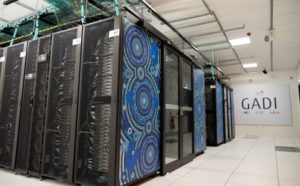 |
Australia’s Gadi a Powerhouse in Global Supercomputing Ranking
Australia’s newest and fastest supercomputer is a game-changer for the country’s leading scientific institutions. Gadi, meaning ‘to search for’ in the language of the Ngunnawal people, will strengthen Australia’s capacity to perform world-leading scientific research, and will directly contribute to the safety and wellbeing of the nation. The supercomputer, based at NCI Australia, has placed at 24 on the TOP500 list, a global ranking of supercomputers. Gadi is the most powerful supercomputer in the Southern Hemisphere.
Read more: https://nci.org.au/news-events/news/australias-gadi-a-recognised-powerhouse-global-supercomputing-ranking. |
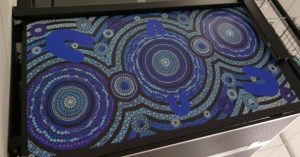 |
Celebrating the NCI Supercomputer with a Ngunnawal Name and Artwork
Australia’s largest supercomputing facility, NCI Australia, has christened their new supercomputer ‘Gadi’ [Gar-dee], a word of the Ngunnawal people meaning ‘to search for’. It perfectly encompasses NCI’s mission of scientific research and high-performance computing: to search for knowledge that can make the world a better place through enabling innovative world-class research.
Read more: https://nci.org.au/news-events/news/celebrating-nci-supercomputer-a-ngunnawal-name-and-artwork. |
 |
ARDC Register of Experts
The ARDC is interested in establishing a register of people to review proposals submitted to our program open calls and to provide specialist advice to the ARDC on an ad hoc basis.
Register your interest to be on the expert panel at https://docs.google.com/forms/d/e/1FAIpQLSf8e0e3AYyLdLqzBsTCH6fDW76ffMMXMn0xLW1Cy8bQRMCrqA/viewform. |
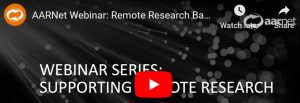 |
Supporting Remote Research
For insights and information about resources to help with addressing the challenges faced by researchers working remotely, you can watch the recordings of AARNet’s five-part webinar series that explored this theme. Topics include Remote Research Basics, Collecting Data Remotely, Remote Data Storage and Analysis, Maintaining and Building Communities, and Building Remote Data Workflows.
See https://www.aarnet.edu.au/events/aarnet-webinar-series-supporting-remote-research. |
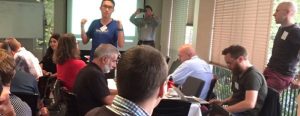 |
ARDC Research Data Roundtables
Research data roundtables facilitated by the ARDC are held several times a year in all states. These roundtables are held to share ideas and learn from peers across a range of institutions in your area.
Click on each the following links to find out more: NSW https://sites.google.com/ardc.edu.au/syd-rd-rt/home. QLD https://sites.google.com/ardc.edu.au/qld-rd-rt/home. SA https://sites.google.com/ardc.edu.au/sa-roundtable/home. VIC/TAS https://sites.google.com/ardc.edu.au/vic-tas-informal. WA https://sites.google.com/ardc.edu.au/wa-rd-roundtable.
General ARDC Communities of Practice site here: https://ardc.edu.au/resources/communities-of-practice/. |
 |
Climate Change Land Capability and Capacity Project
Federation University Australia’s Centre for eResearch and Digital Innovation (CeRDI) is working with Bass Coast Landcare and colleagues from Federation University’s Gippsland campus to develop a Climate Adaption Planning Tool for the Growing Southern Gippsland project. The decision support tool will enable landowners and farmers to prepare and plan for change in their region. The tool will be structured into four main themes to assist with informed decision-making. The planning tool is one element of a project developed to support Southern Gippsland farmers and landowners to develop resilience to climate change. The tool will be launched later this year.
For further information: http://www.cerdi.edu.au/GrowingSouthernGippsland. |
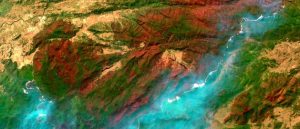 |
Using Satellite Imagery to Solve Real World Problems
Digital Earth Australia transforms spatial data and satellite imagery into easily accessible tools for planning and decision making and relies on AARNet for moving data around the research community.
Read more in the AARNet case study: https://www.aarnet.edu.au/case-studies/using-satellite-imagery-to-solve-real-world-problems. |
 |
New Zealand RSE Conference 2020 – Submissions & Registration Open!
For the last four years, New Zealand eScience Infrastructure (NeSI) has hosted a successful and increasingly popular Science Coding Conference. There’ll be a few exciting changes to our event this year:
Our 2020 conference theme is Scaling: Challenges, Opportunities and Considerations, and we’re seeking lightning talks, presentations, Birds-of-a-Feather sessions, poster presentations and workshops.
|
 |
Webinar: How Containers can Improve Research Workflows: 23-Jul
Containers can be thought of as a computer within a computer, allowing researchers to run software without installation, saving time and effort. On 23 July, New Zealand eScience Infrastructure (NeSI) is hosting a webinar with Tom Harrop and Joseph Guhlin to demonstrate why researchers should use containers in their workflows. They will work through a genome assembly, gene prediction, and a comparative genomics pipeline while explaining what benefits containers can provide. Specifically, they will cover:
More information: https://www.nesi.org.nz/event/2020/07/reproducible-research-workflows-containers. |
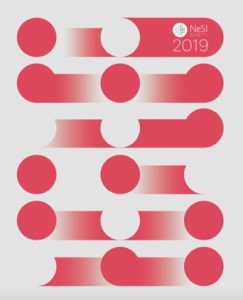 |
NeSI 2019 Annual Review Released
The New Zealand eScience Infrastructure (NeSI) Annual Review for 2019 documents another active and successful year. During 2019, NeSI built on the national platform’s core infrastructure foundation, to develop services that deliver full benefits of the investment to the science sector. Our collaborators – NIWA, the University of Auckland, University of Otago, and Manaaki Whenua Landcare Research – play an essential role in NeSI, enabling us to connect with and respond to the evolving needs of research communities. We also enjoy a strong partnership with the Ministry of Business, Innovation and Employment (MBIE) Strategic Science Investment Fund (SSIF) and team.
|
 |
Introduction to the Pawsey Supercomputing Centre
Did you miss our recent Introduction to the Pawsey Supercomputing Centre session? You can re-watch it on Pawsey’s YouTube channel (https://www.youtube.com/pawseysupercomputingcentre), where you’ll learn:
Watch the full video here: https://www.youtube.com/channel/UCeGE3ZPTJv4u4binOVZvPiw. |
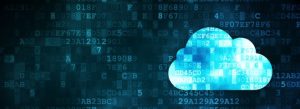 |
Introduction to Nimbus Webinar Series
Do you want to learn how to use the Nimbus Research Cloud at the Pawsey Supercomputing Centre?
This series of short videos:
Watch the full series here: https://www.youtube.com/playlist?list=PLmu61dgAX-aYar4Fpust_u3mpDt07T2jl. |
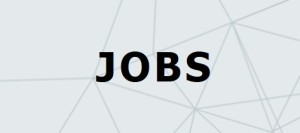 |
eResearch Jobs
AeRO provides details of the latest eResearch job opportunities in the sector. Jobs are posted immediately to https://twitter.com/AeRO_eResearch, and the website at http://aero.edu.au/jobs/ is also updated.
This is a free service for the whole eResearch community – to advertise a position, simply email loretta@aero.edu.au.
Here are some current vacancies: eResearch Training and Engagement Manager, ARDC Engagement Consultant (SA), HIVE Senior Research Officer and Research Assistant, HPC / Linux / Kubernetes Systems Engineer. |
Contributions
This newsletter is based on contributions provided by members of the eResearch community, and draws on news articles and newsletters published across the sector. The Newsletter is published around the 16th of each month.
Please send any contributions (max. 100 words, plus a link and image) or pointers to any other relevant articles or newsletters to editor@aero.edu.au
Archives of these Newsletters are held at http://aero.edu.au/newsletters/.
Click HERE to add yourself to the eResearch Mailing List.
Thanks,
—AeRO Newsletter Editor

